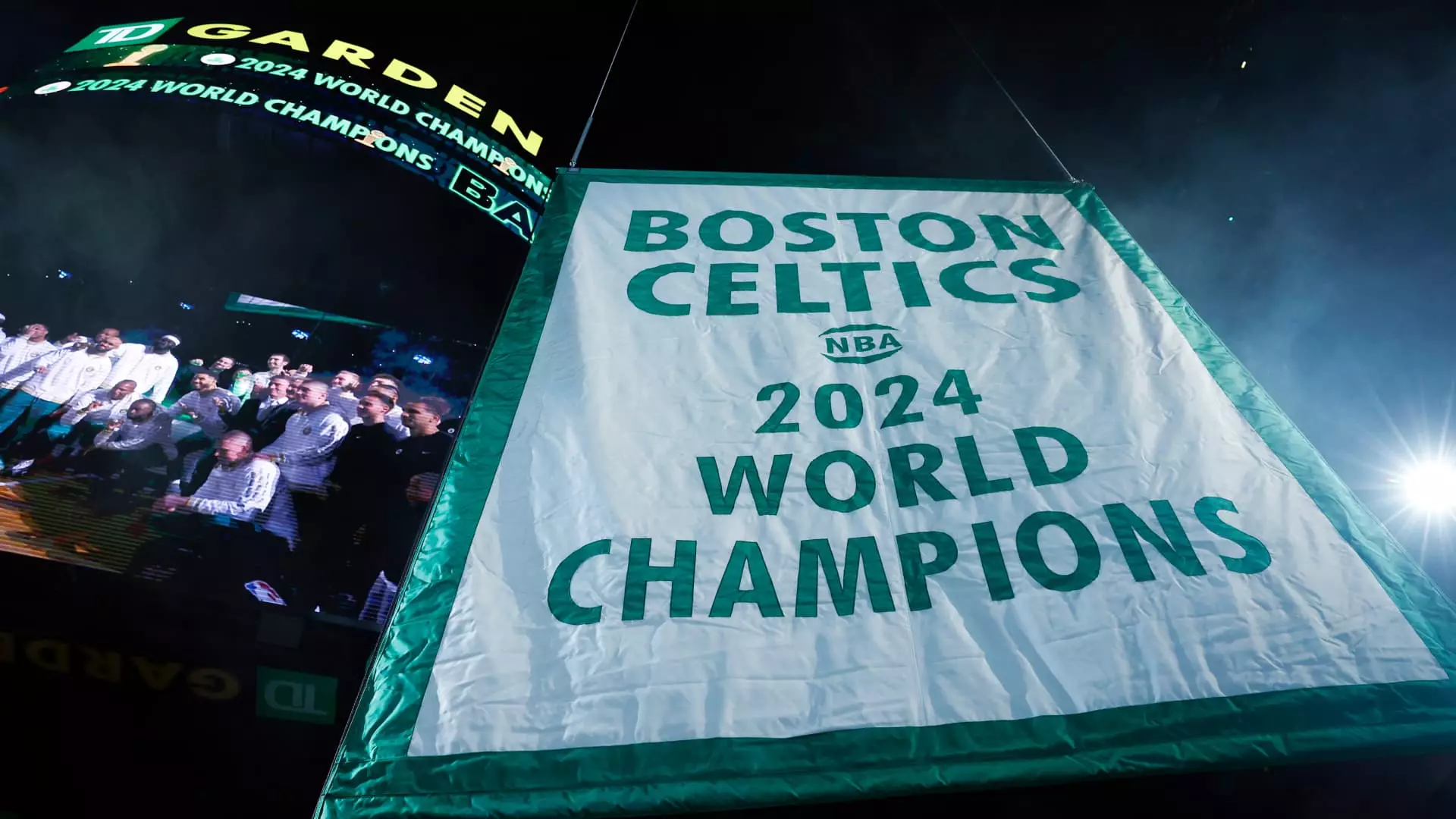It’s not every day that a sports franchise changes hands for a staggering sum of $6.1 billion, especially one steeped in as much history and tradition as the Boston Celtics. This sale, initiated by private equity leader Bill Chisholm, signals more than just a change in ownership; it represents a shifting paradigm in sports and its connection to the communities that rally behind these teams. The involvement of private equity firms, such as Sixth Street, raises important questions about the future of ownership and the often-ignored relationship between money and passion in sports.
Chisholm, who claims a lifelong loyalty to the Celtics, promises to uphold the values accompanying ownership of such a storied franchise. However, one cannot help but scrutinize whether the emotional investment of a “die-hard fan” is enough to compensate for the cold calculations associated with private equity. The impact of profit motives can be profound, often altering how organizations function at their core. Can we trust that the sacred legacy of the Celtics will remain intact when financial obligations increasingly dictate team decisions?
Community vs. Capital: Will the Celtics Stay Rooted?
Boston stands alone in its unique bond with the Celtics; the team is more than just players and games; it’s an institution rooted in the culture and spirit of the city. Chisholm’s assertion that he recognizes the “responsibility as a leader of the organization to the people of Boston” is commendable, yet it raises eyebrows. When billion-dollar valuations loom over decisions, it’s often the community that takes a back seat to financial projections. Are we to believe that a corporate mindset, comma-intended before community values, can authentically respond to the emotional needs of fans?
The economy of sports has shifted, transitioning from passionate local ownership to corporate interests that dominate the narrative. The melding of private equity into traditional sports ownership is a concerning trend. It prioritizes financial gain over community engagement, leaving local fans wondering if their beloved team is merely a vehicle for profits rather than a beloved symbol of pride. If this model continues, the intimate companionship of fan and franchise could be lost, overshadowed by a focus on executive bonuses and stock prices.
Historic Valuations: The Economies of Sport
With franchises erupting in value—like the Celtics now leading at $6.1 billion—one must question what this means for the future of sports access and ownership. Historical valuations are routinely shattered, with media rights deals taking sport franchises to heights previously unimaginable. The recent NBA media agreement, valued at $76 billion over eleven years, only solidifies the notion that money, not sentiment, reigns supreme.
While it’s thrilling to see such immense growth in the league, the door it opens for exclusive elite ownership poses a serious conundrum. The possibility of the average fan being unable to relate to, or engage meaningfully with, these teams begins to creep into the cultural milieu. With the elite increasing their grip on franchises, how can aspiring young owners navigate an industry increasingly priced out of their reach?
The Celtics have a proud legacy, holding the record for the most NBA championships at eighteen titles, yet the soaring valuations may mean that the next generations of ownership could come from a completely different demographic—one which may not have the same emotional connection to the franchise.
The Future of Fan Engagement: A Hopeful Perspective?
As we ponder the implications of this historic sale, it’s essential to imagine a future where fan engagement remains a priority despite the changing landscape. Perhaps Chisholm and his group will redefine what it means to be a private equity owner of a sports team. They can use this moment to blend financial acumen with authentic community engagement, keeping the Celtics as a cultural keystone for Boston.
It remains to be seen if the lofty price tag will translate into a responsible stewardship of the team’s legacy. Will Chisholm thrive as the protecting force of the Celtics’ heartbeat, balancing the horns of capitalism with heartfelt community service? Or will we witness the decline of yet another storied franchise into a soulless corporate entity used primarily for profits? This ongoing evolution of sports ownership could very well define the next chapter of what it means for a city like Boston to call a team its own.


Leave a Reply